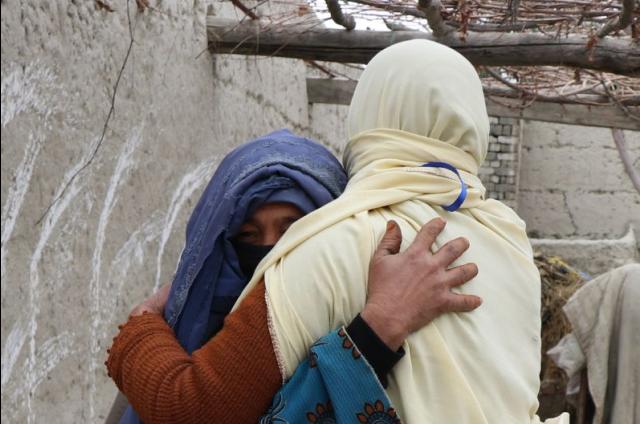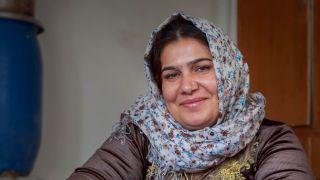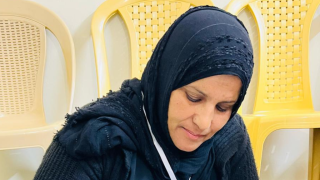Serving Up Sisterhood: A Taste of Home and Connection
Serving Up Sisterhood: A Taste of Home and Connection
Zeina Kanawati, originally from Damascus, Syria, now calls Berlin home after moving through various countries with her family
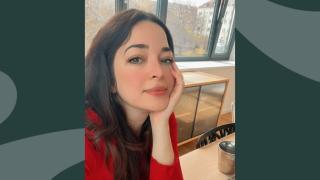
For the past five years, Zeina has been working with one of our Conflict Response Fund partners, Women Now for Development, a Syrian organisation that supports women's rights and development in conflict-affected areas.
As the Communication Director, Zeina has been deeply involved in documenting and sharing the stories of women in conflict and refugee situations.
Finding home in Berlin
When Zeina first arrived in Berlin, she was struck by the familiar sights, sounds and smells of Syrian restaurants and Arabic-speaking people.
Despite the sad reality that these communities were formed out of necessity, escaping conflict and danger, they managed to recreate a piece of their homeland in a foreign place. Through food, they introduced themselves and their culture to their new neighbours, often before even learning the language or addressing stereotypes of refugees.
Zeina recalls:
It felt immediately like home.
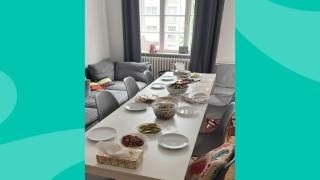
The Rituals of Food
For Zeina, food is more than sustenance; it is a profound connection to her roots and culture. She explains:
It's not just about one dish; it's about the full culture, the rituals around food.
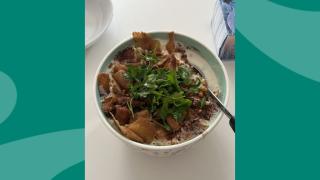
In Syria, weekends were marked by a traditional breakfast of hummus and yoghurt-based dishes, a tradition Zeina continues with her children in Berlin. This ritual, carried from her homeland, now binds her family together in their new environment.
One of the dishes that hold special significance for Zeina is Fatteh. Originating from the Levantine region, Fatteh is made from chickpeas cooked with cumin, garlic and lemon, mixed with yoghurt and tahini, and topped with crunchy bread and ghee.
For Zeina, Fatteh not only brings back memories of home but also symbolises resilience and creativity in the face of hardship.
The literal meaning of Fatteh is 'leftovers". It's a dish that evolved from using what was available, but it tastes amazing.
Zeina vividly describes the sensory experience of preparing and eating Fatteh. The aroma of garlic, lemon zest and cumin wafting through her kitchen instantly transports her back to her childhood in Syria.
It smells like my family when I was a small child.
Though her family is now scattered across different countries, the familiar scent of Fatteh brings back cherished memories and a sense of togetherness.
Food as a Tool for Connection
Beyond personal nostalgia, food plays a crucial role in bridging gaps between cultures. Zeina shares how food acts as the first hello between refugees and their new communities:
We knock on the doors of our neighbours with a small plate of food to taste. This is the first smile, the first hello.
Sharing food helps break down stereotypes and creates a common language, fostering understanding and acceptance. Zeina also highlights the collective power of food in times of crisis.
After the devastating earthquake in Syria and Turkey, a community kitchen initiative emerged, supported by Women Now for Development. Women came together to cook and distribute meals to those in need. Zeina shared:
Food became a form of resistance and a symbol of our longing to live again.
Through cooking and sharing meals, these women found a way to support their community and reclaim a sense of normalcy amidst the chaos.
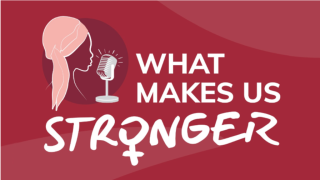
HEAR MORE ON OUR PODCAST
a taste of home
What is it about the food we eat that connects us to the places we're from? For refugees fleeing conflict, cooking an old family recipe can be a treasured connection to a lost homeland.
Hear from two women displaced by war, Women for Women International’s Storai Ahmadi and Zeina Kanawati from Women Now for Development, about what they cook that reminds them of home. Podcast host, Nisha Singh, also talks to Heifa Odeh, Palestinian-American chef, Fufu’s Kitchen food blogger and author of Dine in Palestine about the recipes handed down through generations of her family.
keep reading
The Stories Behind the Statistics
subtitle:
Behind every number is a human being - with hopes, dreams and fears. This World Refugee Week, learn and share the stories of three brave women.
Despite their many shared experiences, refugees, asylum seekers and internally displaced people face unique circumstances and are afforded different legal protections - so it’s important not to use the terms interchangeably. So, what's the difference?
Saleha
subtitle:
"This is the first time I have the confidence to share my story."
After surviving conflict and tremendous loss, Saleha is finding ways to rebuild her life and care for her eight children. Read Saleha's story, shared in her own words.

